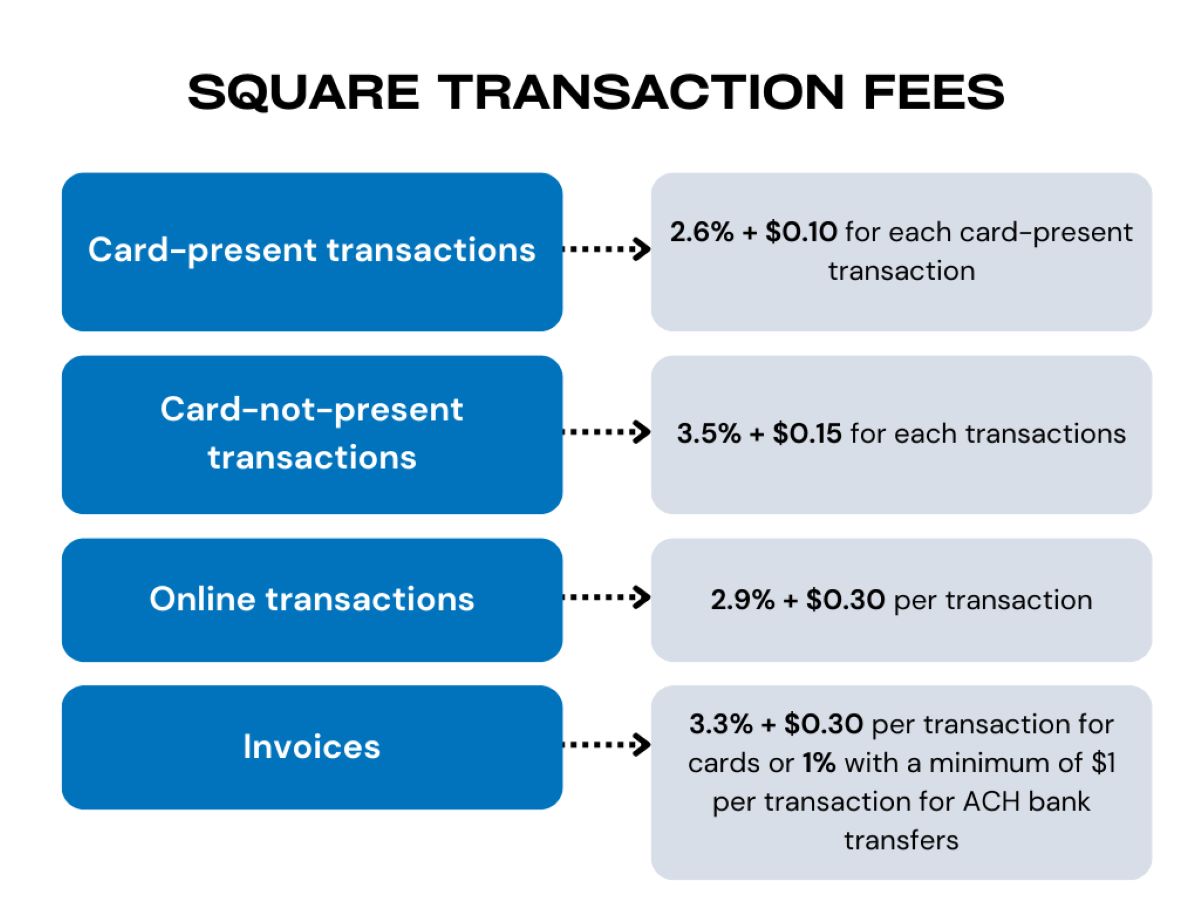Home>Finance>Which Account Should Be Used For Merchant Fees?


Finance
Which Account Should Be Used For Merchant Fees?
Published: February 24, 2024
Learn the best finance account to use for managing merchant fees. Discover how to optimize your financial strategy and maximize your profits.
(Many of the links in this article redirect to a specific reviewed product. Your purchase of these products through affiliate links helps to generate commission for LiveWell, at no extra cost. Learn more)
Table of Contents
Introduction
Understanding the Role of Merchant Fees in Financial Transactions
Merchant fees are an essential aspect of financial transactions, especially in the realm of business and commerce. Understanding the impact of these fees and the accounts used to manage them is crucial for financial success. In this comprehensive guide, we will delve into the intricacies of merchant fees, the types of accounts commonly utilized to handle them, and the considerations for choosing the most suitable account for your specific financial needs.
Whether you are a small business owner, a financial professional, or simply an individual seeking to comprehend the complexities of financial management, this article will provide valuable insights into the world of merchant fees and the accounts designed to accommodate them.
Join us as we explore the intricacies of managing merchant fees and the pivotal role that the choice of account plays in this process. By the end of this guide, you will have a clearer understanding of the options available to you and the factors to consider when selecting the most appropriate account for your financial transactions.
Understanding Merchant Fees
Merchant fees, also known as credit card processing fees, are charges imposed on businesses for accepting electronic payments from customers. These fees are typically associated with debit and credit card transactions and are essential for facilitating the seamless processing of payments. It’s important to recognize that merchant fees are not uniform and can vary based on a variety of factors, including the type of card used, the processing method, and the terms negotiated with the payment processor.
When a customer makes a purchase using a credit or debit card, the merchant incurs a cost for processing that transaction. This cost is commonly expressed as a percentage of the transaction amount, along with a flat fee for each transaction. While these fees enable businesses to offer convenient payment options to their customers, they can also impact the company’s bottom line.
It’s crucial for businesses to grasp the intricacies of merchant fees, as they directly influence the profitability of each transaction. By comprehending the components of these fees and how they are calculated, businesses can make informed decisions regarding their payment processing strategies and the accounts used to manage these expenses.
Furthermore, understanding the dynamics of merchant fees empowers businesses to negotiate favorable terms with payment processors, potentially reducing the overall impact of these fees on their financial operations. As we delve deeper into the realm of merchant fees, we will explore the types of accounts that can be leveraged to effectively manage these expenses, ultimately optimizing the financial health of businesses across various industries.
Types of Accounts
When it comes to managing merchant fees, businesses have several account options at their disposal. Each type of account serves a distinct purpose and is tailored to accommodate specific financial needs. Understanding the characteristics and functionalities of these accounts is essential for making well-informed decisions regarding the management of merchant fees. Let’s explore the primary types of accounts commonly used for this purpose:
- Operating Account: This is the primary bank account used for daily business operations. It is where incoming revenues from sales are deposited, and outgoing expenses, including merchant fees, are paid. By utilizing the operating account to cover merchant fees, businesses can streamline their financial processes and maintain a clear overview of their cash flow.
- Merchant Account: A merchant account is specifically designed to handle funds from credit and debit card transactions. It serves as an intermediary between the business’s operating account and the payment processor, facilitating the seamless transfer of funds related to electronic payments. By segregating card transaction funds in a dedicated merchant account, businesses can easily track and manage these funds, including the associated fees.
- Reserve Account: In certain cases, payment processors may require businesses to maintain a reserve account to mitigate the risk of potential chargebacks or disputes. Funds held in a reserve account act as a form of security, providing reassurance to the payment processor and helping to cover any unforeseen liabilities, including disputed charges or excessive refunds.
These accounts play a pivotal role in the financial infrastructure of businesses, offering distinct functionalities that cater to the complexities of managing merchant fees and electronic transactions. By leveraging the appropriate accounts in conjunction with strategic financial planning, businesses can effectively navigate the landscape of merchant fees and optimize their overall financial performance.
Considerations for Using Different Accounts
When determining the most suitable accounts for managing merchant fees, businesses must carefully consider a range of factors to align their financial strategies with their operational needs. The choice of accounts can significantly impact the efficiency of financial processes and the overall management of electronic transactions. Here are key considerations for using different accounts in the context of merchant fees:
- Transaction Volume and Frequency: Businesses with high transaction volumes and frequent electronic payments may benefit from a dedicated merchant account. This specialized account streamlines the processing of card transactions and provides a clear overview of the associated fees, enhancing financial transparency and control.
- Financial Planning and Cash Flow Management: The utilization of distinct accounts for operating expenses and electronic transactions can facilitate precise cash flow management. By segregating funds related to merchant fees in a separate account, businesses can effectively track these expenses and allocate resources strategically.
- Risk Mitigation and Compliance: Certain industries or business models may necessitate the establishment of a reserve account to comply with regulatory requirements or mitigate potential risks associated with chargebacks and disputes. Understanding the specific regulatory and risk management considerations is crucial when determining the need for a reserve account.
- Payment Processor Requirements: Businesses should consider the account preferences and requirements of their chosen payment processors. Some processors may recommend or mandate the use of specific accounts for managing electronic transactions and associated fees, warranting careful alignment with the processor’s guidelines.
- Financial Reporting and Analysis: The segregation of funds in dedicated accounts can streamline financial reporting and analysis. By utilizing distinct accounts for different financial purposes, businesses can generate accurate reports, assess the impact of merchant fees on their bottom line, and make data-driven decisions to optimize their financial performance.
By evaluating these considerations in conjunction with their unique operational requirements, businesses can make informed decisions regarding the selection and utilization of different accounts for managing merchant fees. This strategic approach not only enhances financial efficiency but also fosters greater control and visibility over electronic transactions, ultimately contributing to the overall financial well-being of the business.
Conclusion
As we conclude our exploration of managing merchant fees through different types of accounts, it becomes evident that the strategic selection and utilization of these accounts are paramount to the financial health and operational efficiency of businesses. The intricate interplay between merchant fees, electronic transactions, and the accounts used to manage these expenses underscores the need for a comprehensive understanding of the associated considerations and implications.
By comprehending the nuances of merchant fees and the distinct functionalities of operating, merchant, and reserve accounts, businesses can implement tailored financial strategies that optimize their cash flow management, mitigate risks, and enhance their overall financial performance. The utilization of dedicated merchant accounts for processing electronic transactions, coupled with prudent financial planning and compliance with regulatory requirements, empowers businesses to navigate the complexities of merchant fees with confidence and precision.
Furthermore, the alignment of account usage with transaction volumes, payment processor requirements, and financial reporting needs fosters a cohesive financial infrastructure that promotes transparency, control, and informed decision-making. Businesses that adeptly leverage different accounts to manage merchant fees are better equipped to monitor their financial health, negotiate favorable terms with payment processors, and strategically allocate resources to maximize profitability.
As the landscape of electronic payments continues to evolve, businesses must remain vigilant in their approach to managing merchant fees, adapting their account utilization strategies to align with emerging trends and industry best practices. By staying attuned to the dynamic nature of financial transactions and the evolving regulatory landscape, businesses can proactively refine their account management practices and fortify their financial resilience.
In essence, the effective management of merchant fees through the strategic use of different accounts transcends mere financial transactions; it embodies a proactive commitment to financial stewardship, operational excellence, and sustained growth. With a comprehensive grasp of the considerations and options available, businesses can navigate the realm of merchant fees with acumen, laying a robust foundation for enduring financial vitality and success.














